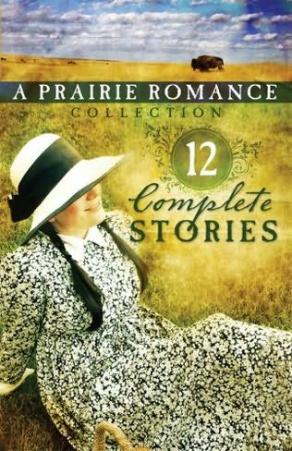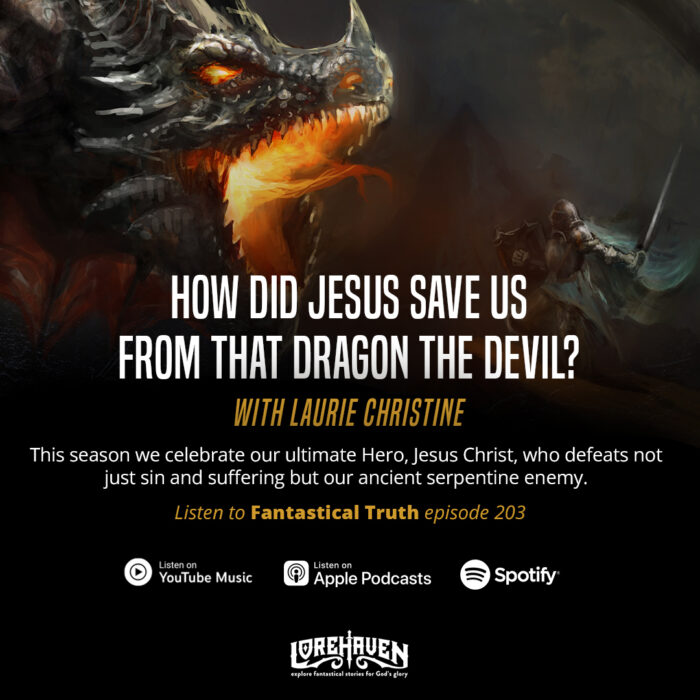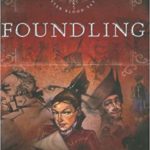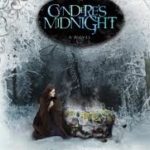The Making Of A Myth, Part 6 — Tolkien On Romance
 Would J. R. R. Tolkien, if he were alive today, be a fan of prairie romance? The question is appropriate because of what he wrote in his essay “On Fairy-Stories” regarding escapism. Most speculative writers are familiar with his analogy about prisoners escaping to go home versus deserters escaping their commitments. We conclude, then, that Tolkien approved escape. But escape from what?
Would J. R. R. Tolkien, if he were alive today, be a fan of prairie romance? The question is appropriate because of what he wrote in his essay “On Fairy-Stories” regarding escapism. Most speculative writers are familiar with his analogy about prisoners escaping to go home versus deserters escaping their commitments. We conclude, then, that Tolkien approved escape. But escape from what?
One thing he seemingly felt needed escape was the clutter and chaos man created with his technological advances — “mechanical traffic” and “robot factories.” In this regard, fantasies were not the exclusive means of escape. Rather, historical fiction, including romance set in an earlier time, would work equally well.
Tolkien’s chief complaint against the advances of his day seemed to center on the idea that these changes, “here to stay,” were part of the “real world,” subjugating things of a more simple time as less real.
For my part, I cannot convince myself that the roof of Bletchley station is more “real” than the clouds. And as an artefact I find it less inspiring than the legendary dome of heaven . . . And if we leave aside for a moment “fantasy,” I do not think that the reader or the maker of fairy-stories need even be ashamed of the “escape” of archaism: of preferring not dragons but horses, castles, sailing-ships, bows and arrows; not only elves, but knights and kings and priests. For it is after all possible for a rational man, after reflection (quite unconnected with fairy-story or romance), to arrive at the condemnation, implicit at least in the mere silence of “escapist” literature, of progressive things like factories, or the machine-guns and bombs that appear to be their most natural and inevitable, dare we say “inexorable,” products.
“The rawness and ugliness of modern European life”—that real life whose contact we should welcome —“is the sign of a biological inferiority, of an insufficient or false reaction to environment.” The maddest castle that ever came out of a giant’s bag in a wild Gaelic story is not only much less ugly than a robot-factory, it is also (to use a very modern phrase) “in a very real sense” a great deal more real. [From “On Fairy-Stories,” p. 21]
Here is where we can see a glimpse into Tolkien’s thoughts about romance. Interestingly, he viewed science fiction as the “most escapist form of all literature,” but in creating a world different from the one we know, they leave untouched the causes for the problems.
To judge by some of these tales they will still be as lustful, vengeful, and greedy as ever; and the ideals of their idealists hardly reach farther than the splendid notion of building more towns of the same sort on other planets. It is indeed an age of “improved means to deteriorated ends.” It is part of the essential malady of such days — producing the desire to escape, not indeed from life, but from our present time and self-made misery — that we are acutely conscious both of the ugliness of our works, and of their evil. So that to us evil and ugliness seem indissolubly allied.
This marriage of evil and ugliness meant that an ogre would be incapable of creating something that remained as ugly as he and yet had a good or self-less purpose. (Clearly, Tolkien had not met Shrek!) That the fear of the beautiful fay had faded and worst, that “goodness is itself bereft of its proper beauty.”
Enter escapist fiction.
This, however, is the modern and special (or accidental) “escapist” aspect of fairy-stories, which they share with romances, and other stories out of or about the past. [emphasis added]
Can we conclude, then, that Tolkien would be a fan of prairie romances? Perhaps in so far as they went, but he didn’t believe the problems of life began and ended with technology.
There are other things more grim and terrible to fly from than the noise, stench, ruthlessness, and extravagance of the internal-combustion engine. There are hunger, thirst, poverty, pain, sorrow, injustice, death. And even when men are not facing hard things such as these, there are ancient limitations from which fairy-stories offer a sort of escape, and old ambitions and desires (touching the very roots of fantasy) to which they offer a kind of satisfaction and consolation.
It is the idea of “consolation” that seems central to Tolkien’s beliefs about fairy stories, something less often discussed than his thoughts on sub-creation and escape. I’ll take a look at that aspect next time, but for now, I suggest that Tolkien wouldn’t hate prairie romances, perhaps not even Amish fiction. I think he’d understand them but think they aren’t sufficient. Their escape doesn’t go far enough and they offer little else.
I wonder. Have today’s speculative authors become snobbish in our attitudes toward romance — particularly “bonnet books” — when in fact we should take a page from Tolkien’s book and adapt a more objective view, crediting them for what, in fact, they actually accomplish?








































I don’t see how romances can be considered “escapist fantasy”, unless it’s escaping from a less-than-perfect marriage to spend some time with a perfect hunky man who sees to his woman’s every need.
Now, if Amish romance featured the Fae or aliens or unicorns, I might consider it escapist fantasy, as in, you read it because it’s a nice place to go. But escaping there for the sake of romance itself? Not so much. I’m not a big fan of repressive uber-religious communities, myself.
This, of course, is just my personal taste. I’m just puzzled how Amish romance has anything to do with anything Tolkien said.
Dibs. Called.
But, then again, I’d already called dibs on Amish vampires, months before blogger Tim Challies did (and raised my original offer by also adding end-times thriller elements).
So perhaps it’s time to let someone else have a turn at an Amish-something.
Loved your piece, Becky. Moreover, this marks the first Speculative Faith column I’ve read aboard an airplane. (Deeper comments coming tomorrow, I hope.)
You ought to read In Plain Sight by Marlayne Giron. A different kind of Amish romance with aliens hiding in the community.
Lelia: wow, that sounds like a win. Linkage/author? Would it fit in the Speculative Faith Library of Christian speculative fiction titles?
I agree with Kessie. While I agree that the simplicity of the Amish lifestyle or Western romance attracts many readers, I don’t see how else it fits Tolkien’s criteria.
Kessie, Galadriel, Tolkien was talking about escaping from the noise and pollution and ugliness of the industrial world which modernism was so happily embracing. He wasn’t, I’m guessing, so concerned with the romance as with the earlier times, when life was more in tune with nature.
Honestly, for the first time I understand why the pagans embrace Tolkien. There’s a section in the essay, which I didn’t have time to feature in this article, in which he explains that one thing we long for is things like communing with animals. It’s why faery stories include talking animals, he said. I wasn’t sure whether to ask if he would be a fan of romance or if he would be an environmentalist.
The prairie romances certainly are about the simpler time, when man appreciated the man-made things (as opposed to the factory-made variety). What I find so interesting is that much of what Tolkien railed against is being reversed. He’d be happy to see solar energy and organic food, I think, and the return to home cooking and quilting and the like. Which makes me think he’d appreciate the stories about the Amish and their simpler ways.
I don’t think “repressive uber-religious communities” fits either the prairie romances or Amish communities. Many Amish, I fear, aren’t even Christian. It’s mostly about a life style, and it seems young people have the choice to leave it or embrace it.
The escape Tolkien referred to is about a return to the world before the industrial age, but as I said in the article, he thinks the ugliness of the “robot-factory” was only one of the things that we need to escape, and the ones connected with what he termed “consolation” are weightier. He believed that fairy stories alone could offer consolation.
Becky
I think that Tolkien may or may not have been embracing some of the current environmental fads you refer to Ma’am. I have read that in his lifetime, he wanted nothing to do with the modern, very secular, environmentalist movement. He also was skeptical of government regulations, as Lewis was. I think his preferences were ones he help personally, but did not want to see enforced on others.
I also don’t know about organic foods, in that the food he ate at the pub with the Inklings were not exactly healthy.
Hmmmm. I don’t know about the connection to Amish romance or any other romance. From what I’ve read of him, other than his disdain for changing folklore and myth (for which he greatly disliked Walt Disney), he pretty much felt a general live and let live attitude on these things.
I love Disney by the by. I think most of the original versions of fairy tales are either depressing, sadistic, or both.
I’m so grateful for this post, Rebecca. Questions about writing fantasy romance have been running through my grey matter a lot lately. Is it really of any benefit for me to create these worlds populated with dramatic characters who live such unrealistic lives? Yes, their stories illuminate a greater truth – an attempt on my part to honor a beautiful God – but will my reader walk away loving God more? Or will she simply crave what can never be experienced?
My own recent battles with my imagination have tested my purpose. I can’t seem to stop rewriting another author’s story in my mind. It’s pointless, and unprofitable. I will never actually write what I’m dreaming up, and yet I can’t shake envisioning the characters. I’ve concluded the story’s grip on me is a culmination of several factors: 1) I haven’t been able to work on my own novel for the last two months, 2) spiritual warfare and, 3) escape is easier and more pleasant than training your mind to be worshipful, or alert and sober. Whatever is at work – I don’t like it. It’s new for me and very frustrating.
So do I want my work to distract someone else like I’ve been distracted? I suppose I’m not accountable for what people do with my work. If they choose to obsess on it that is their decision. I surely can’t stop writing because I’m afraid of how someone MIGHT respond to my work. But my trial sure has made me more aware of the pitfalls for my audience. I don’t want my protagonist to be so alluring he/she overshadows the greater message. I want to spur people on to love God more, not train up retreaters.
For me, the answer is to get back to work, crafting a story with characters that are beautifully flawed so a perfect God shines. I will look for the rest of this series. I need Tolkien’s counsel as well as any thoughts you might have. 🙂
Sarah, I think it’s good that you’re asking the questions. I know I had to ask myself some tough things as I became aware of the interaction of readers with my story.
I wonder if craving what never can be experienced isn’t actually something God can use. We will never experience Narnia, but I longed to do so and grieved at the last book, knowing that I would not be returning. But the experience of being there even in my imagination made me understand heaven just a bit more and made me long for an eternity further up and further in. Was that what Lewis was aiming for? Perhaps. Either way, however, that’s how God used his stories in my life.
I think for us as writers, since we cannot know who will read our stories, what their circumstances and needs will be when they pick them up, we can’t get lost in trying to craft them with particular things spelled out. The thinking could easily go like this: I want to point people to Christ, so I need to make sure they see that character x is a Christ-figure. In so doing, we can lose something vital to our story and the very people we want reading it will never pick it up. It’s when the author intrudes to make sure the reader “gets it” that we become preachy in our writing. It’s vital that we trust our readers.
But actually, Sarah, I don’t trust the readers. I trust God. He will use my writing how He wants. If He so chooses to let readers see Him in my work, then He will open their eyes. Nothing I can do to make sure they get it will actually accomplish that. I can’t remove the veil of unbelief from their eyes. All I can do is write as well as possible so they may want to pick up the book, so that others might want to pass it along.
Hope you found the other posts in the series. If you’d like to dialogue more on this, let me know. I do hope you’ll find what you need to embrace your writing again.
Becky
Good thoughts, Becky. In my WIP I have been wrestling with just how human I should make my Christ-like figure and your comments encourage me to go with what my gut was telling me.
I did read the series. I’m struck by how high and lofty Tolkien writes in his essay – very hard for me to follow in places – and yet his series reached so many. Honestly, I could never get as much from his essays as I have from his stories. That’s the power of a great story.
Starting in the new year I will be working on my book again, and hope to send it to you for editing sometime in mmmm…. April? You’re a fantastic editor. 🙂
Blessings.
I think the key here is whether you are creating a Christ-like figure as C. S. Lewis did with Aslan or if you are creating a type of Christ who represents some aspect of his character as Tolkien did in Lord of the Rings.
If the latter, you have room to make the character human. Think of the different Old Testament people who were types of Christ. King David was an adulterer and put out a hit on Uriah. Moses committed murder. Abraham lied, and lied again, about being married to Sarah. Jacob deceived his father and cheated his father-in-law (who, of course, had cheated him). We could go through the patriarchs and see their human, sinful nature coming through, and yet God used them to point to Christ the prophet, redeemer, king. That’s a legitimate approach in our fiction, I think.
Tolkien’s essay was anything but easy to read for me. I had to go over passages more than once, and often to take out the parenthetical phrases to get to the root of his sentences. His non-fiction style is … well, I’d call it meandering, yet it has a clear organization to it. He just didn’t mind digressions.
I understand what he was saying a lot more now, and I understand people’s varied reactions to his writing more, too. I even found places where I disagree with him (GASP! Is it OK to admit that?? 😉 )
I’m happy you have direction now for your book. So … by April, huh. Can I hold you to that? 😆
Sarah, thanks for the kind words about my editing. You rock!
Becky
YES! Hold me to that!!! Haha. And I had the same thoughts regarding my character. So happy we’re on the same page… I know that will change when you get my manuscript. 😀
One late thought: It is not at all obvious to me that when Tolkien spoke of “romances,” he meant the same thing modern publishers, booksellers, and readers do. He talks about “fairy-stories” and “romances” in the same breath several times in the essay, as if they’re more or less equivalent for most purposes. So I suspect he meant the (often fantastical) stories, called “romances” because they were written in the Romance languages rather than in Latin, that were the other stream from which early fantasy drew—including examples such as Orlando Furioso and Sir Gawain and the Green Knight (which he translated).
Jonathan, I had to re-read the post — couldn’t remember the context of Tolkien’s reference to “romance.” I agree that he wasn’t strictly using the word as we think of it today. Rather, it seems like it was a story harkening back to an earlier time. I wonder about the language idea. I don’t remember him bringing that up in the essay, but he was a philologist, after all, so you could be right.
Thanks for weighing in on the subject.
Becky